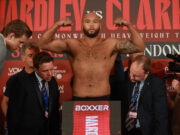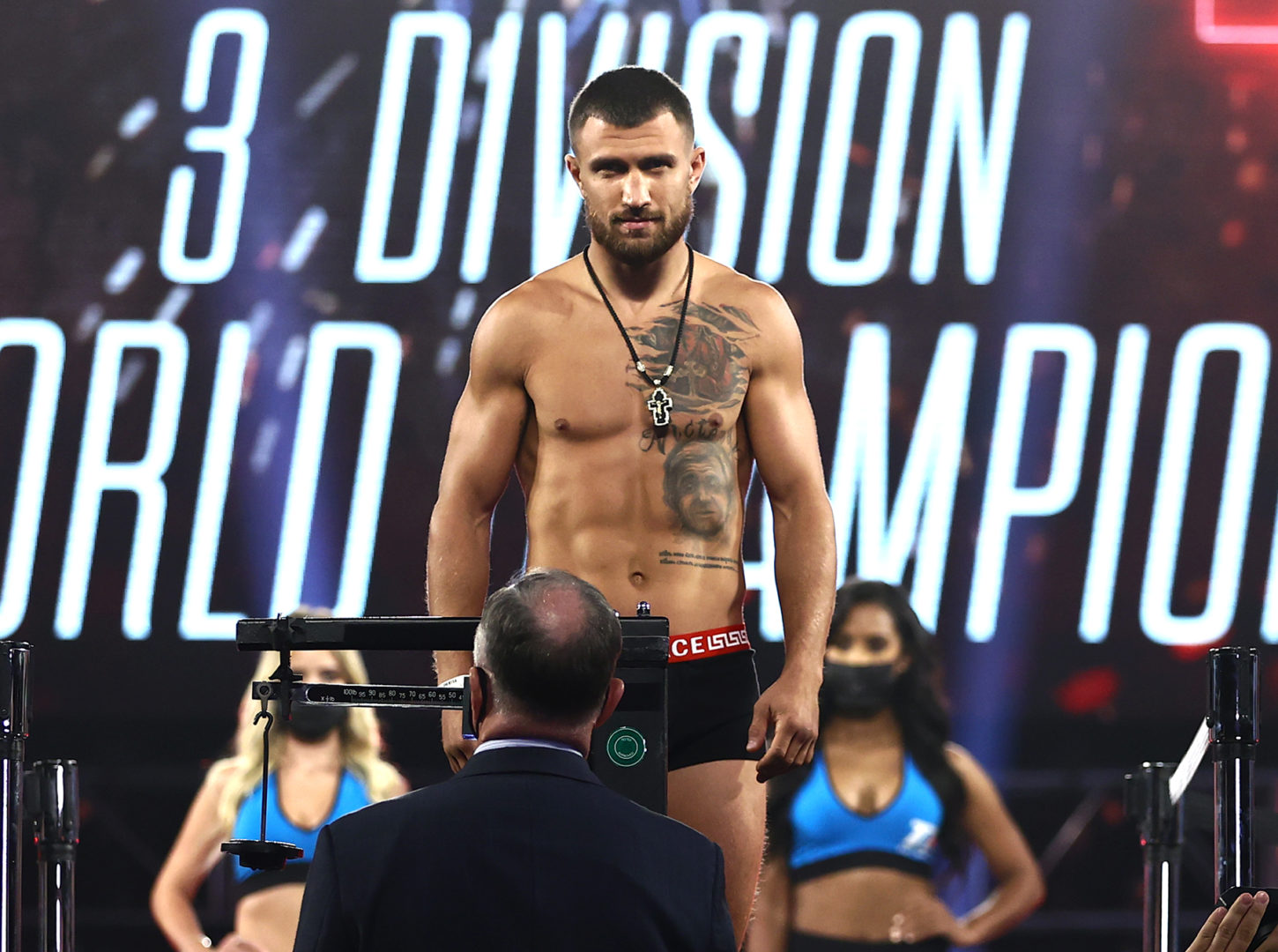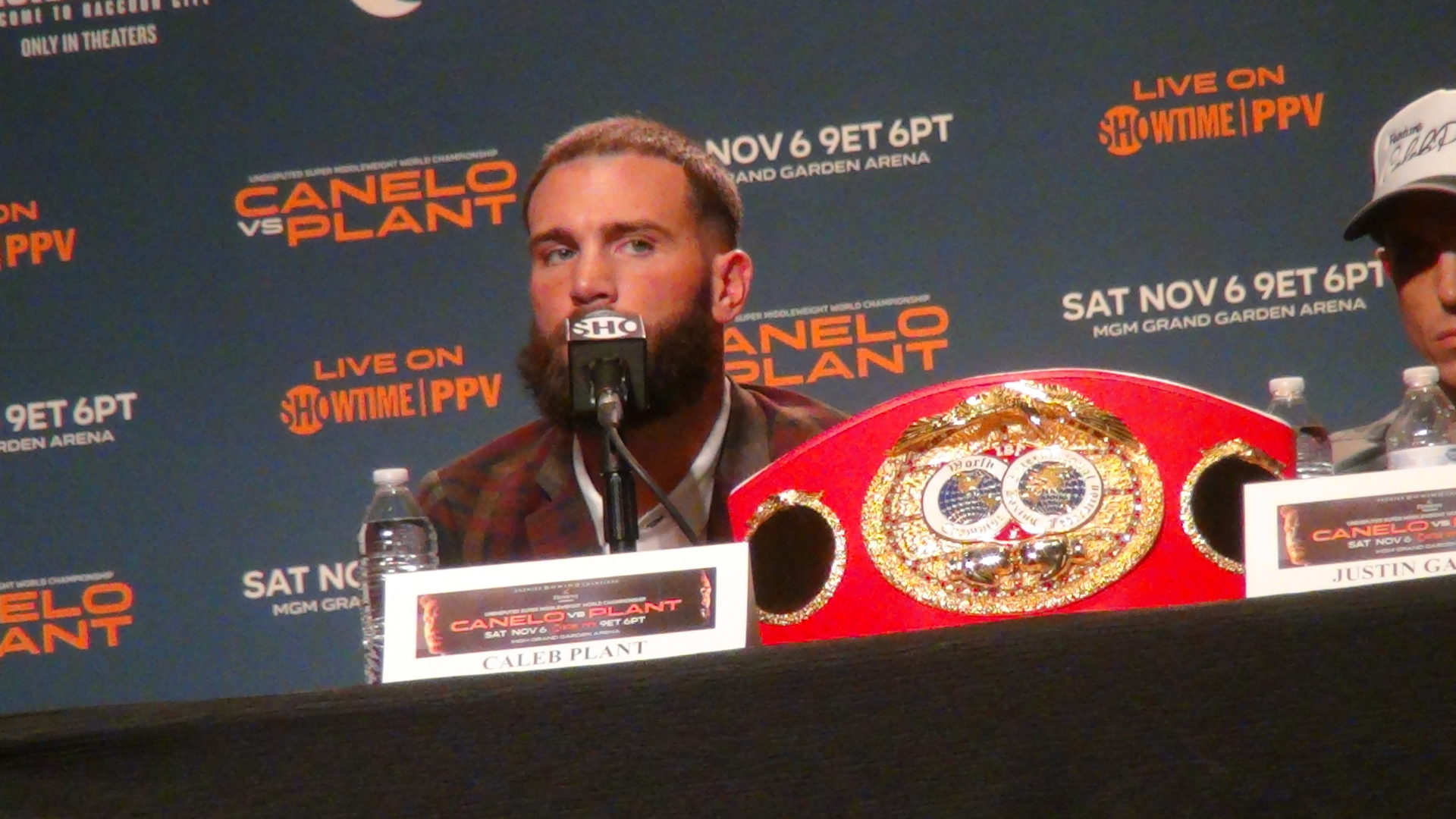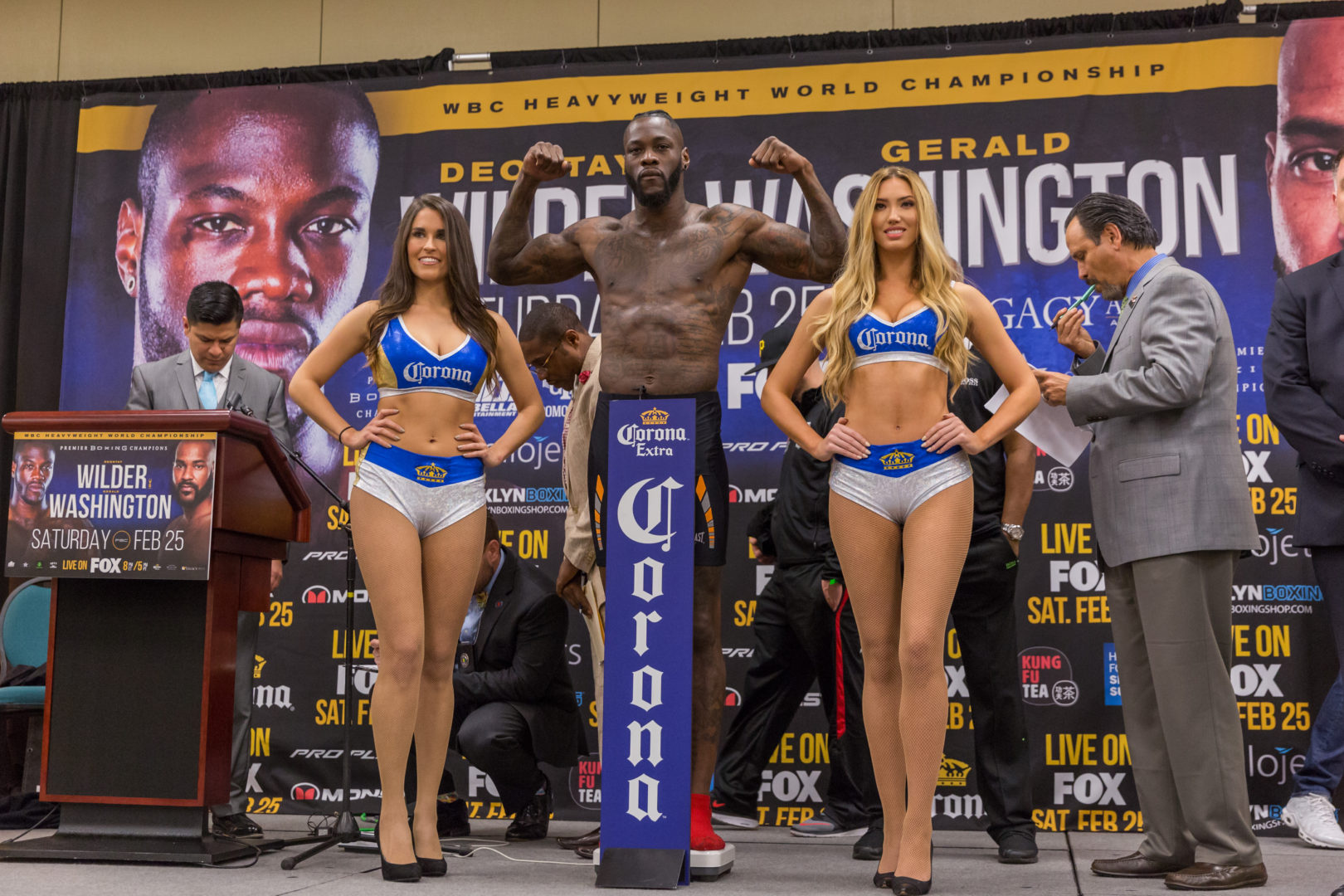By Bart Barry-
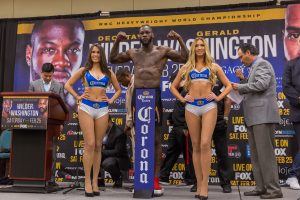
Saturday at Legacy Arena in Birmingham, Ala., Alabamian Deontay “Bronze Bomber” Wilder dropped California’s Gerald Washington in round 5 then went nuts long enough to frighten a technical stoppage out the match’s Canadian referee and retain a WBC heavyweight title.
The preceding words are believable if you didn’t endure the PBC broadcast but incredible if you did. The Bronze Bomber: Seeing is disbelieving.
It’s nigh impossible to write well about mediocre subjects and far as Wilder is from even mediocre this column ought be submitted in Crayola magicmarker on cardboard so adjust expectations accordingly. Things aren’t even farcical with Wilder anymore because they’re not fun and that might be the cruelest turn of all: Wilder was a fun dude when first he turned pro. You knew then at ringside he’d not amount to much of a prizefighter but tall as he was and friendly, too, you cheered for him to sprint through hopeless men a few years before his handlers fed him to a Klitschko or less but never did you or anyone ringside foretell a record of 38-0 (37 KOs) because lads like Harold Sconiers (17-20-2) and Jason Gavern (25-16-4) are both rarer and better than Wilder’s handlers expected or at least rarer than the rest of us did.
Yet here we are, miraculously enough; Wilder’s approaching one of the great matchmaking feats in modern boxing history and doing it with a 97-percent knockout ratio that makes a piker of K2 Promotions’ stabling of cautiously matched titlists. Oh, but Wilder wants to travel to foreign lands to obliterate formidable challengers and true champions alike, but nobody can pass a drug test or meet reasonable contract demands or whatever else. There’s far too much irony in boxing to believe anything that happens anywhere but the blue canvas and fly the most-feared canard in Wilder’s direction, but if you’re PBC and you can fool naifs in Alabama the target is altogether too rich not to try.
Wilder looked awful in the opening rounds Saturday and the closing seconds, too, being pulled windmilling off an opponent who appeared in no serious jeopardy, and that’s symmetrical a thing as might be written about anything Wilder does in gloves. Washington, ostensibly an overmatched 34-year-old in only his 19th professional fight, didn’t flinch when Wilder feinted in the match’s opening 10 minutes which presented a problem for Wilder whose primary strategy was looking ominous for the opening four or so rounds. If Washington didn’t buckle Wilder with his jab he did move him and if it wasn’t by hurting Wilder it was by exploiting his poor footwork and questionable balance. Both men fought with their guards lowered in part because they didn’t know they should be raised and in larger part to taunt PBC viewers.
Washington threw punches more than his contract terms dictated – much as Wilder made for the fight he didn’t inconvenience himself with more than a handful of attempts every three minutes, and much less as Washington surely earned for his challenge he didn’t need to fight like he did – and this sent Wilder scrambling a few times to the ropes where he sort of yanked his chin backwards and leaned rightwards, or maybe to his left, no matter, and assumed he was long enough to stay out Washington’s range, which he was, just.
Wilder’s record and what’s said about him on PBC broadcasts raises this fear: There’s more to Wilder than appears and it behooves all of us to find it. Since nobody has found it, since little more than commentary on Wilder’s height and ferocity fills analyses of his success, I selfishly watched part of Saturday’s match with an open mind hoping to crack the riddle but got tired and missed swaths of inactivity and inevitably abandoned the enterprise yet again.
Deontay Wilder is not a good prizefighter and won’t become one in our lifetime. He’s not one Emanuel Steward from setting title-defense records the way Wladimir Klitschko evidently was; Klitschko had offensive form and footwork and needed a psychologist more than a trainer so once Steward had Klitschko’s fragile psyche and chin tucked nervously behind jabjabhold jabjabhold jabhookcross there were lots and lots of fightstarved Germans to feed Wlad’s signature attrition style. The last thing Wilder needs is a psychologist; if the day arrives Deontay looks inwards or down from the tightrope he now treads the entire charade crashes momentarily so it is better he despise his opponents or attack bystanders in hotel lobbies but not seek to improve at the craft of prizefighting.
Fortunately for Wilder and the entire Alabama ecosystem he sustains there’s no chance Wilder is about to start improving. If anything he looks worse today than he did upon turning pro 8 1/2 years ago, even when a spectator considers the (slightly) improved competition he now confronts: The Bronze Bomber I saw at Desert Diamond Casino in 2009 threw a much straighter and necessarily better cross than what whirligig-dervish finisher PBC viewers routinely witness and with each passing year Wilder borrows from craft to pay rage.
It’s worked so far and no one at PBC should hasten to change this formula: Get decent fighters picked-off with drugtesting, put matches in locales with inexperienced commissions, let Wilder’s lunacy frighten referees into premature stoppages, and get VADA on the Anthony Joshua trail soon as possible. To hell with cashouts – Deontay Wilder could be the undefeated, undisputed, unified heavyweight champion of the world by this time next year!
Bart Barry can be reached via Twitter @bartbarry


